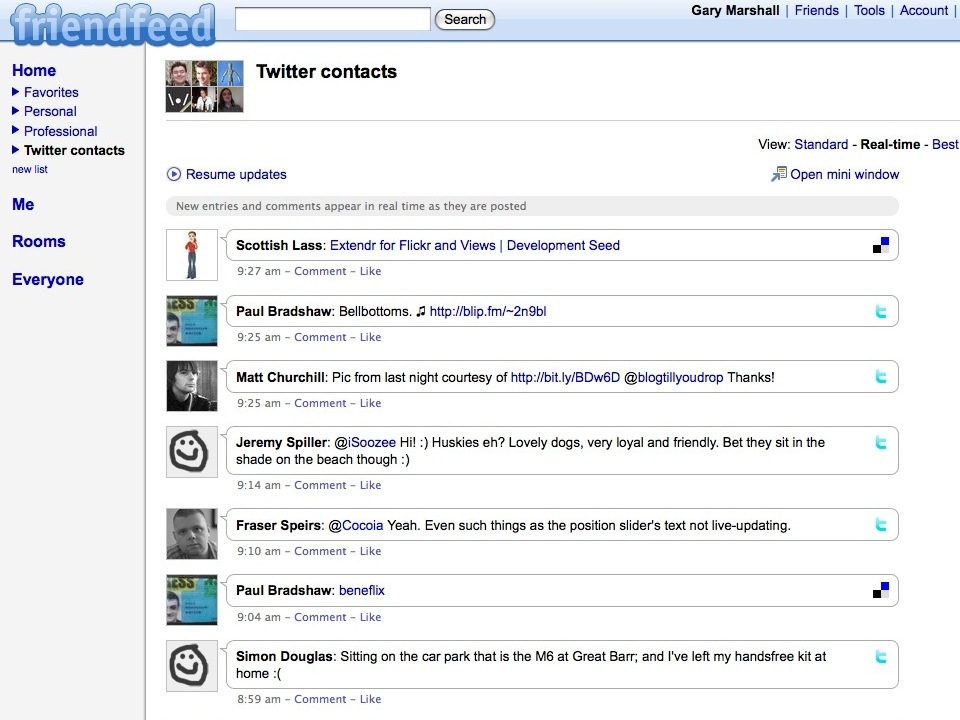6 companies Google should buy right now
Firms that should be at the top of Google's shopping list

Sign up for breaking news, reviews, opinion, top tech deals, and more.
You are now subscribed
Your newsletter sign-up was successful
Google wants to organise all the world's information.
That's the official line, at least, but what it really wants to do is organise all the world's information and stick ads on it.
It's the king of web search and search advertising, but what about the other things we do online?
If Google went shopping, these are the six sites and services they should choose to help make it even more powerful.
1. StumbleUpon
Back in 2007, eBay bought StumbleUpon for around $75million. By the end of 2008 it was rumoured to be looking for a buyer, possibly because hits are down considerably, but more likely because it didn't have a clue what to do with it. It's still an important site, though: at the time of writing it has 7.2 million members telling one another about interesting stuff they've found online.
In many respects it's the anti-Google: where Google helps you find what you're looking for, StumbleUpon finds things that you didn't know you were looking for. It also offers a different kind of advertising. StumbleUpon knows not just what you're looking at, but what interests, amuses or delights you - and that means it can offer advertisers something a bit more interesting than plain old AdWords. Lots of user data, targeted advertising: we're amazed Google hasn't snapped it up already.
Sign up for breaking news, reviews, opinion, top tech deals, and more.
2. Twitter
Google's search spiders are amazing things, but they can't do what Twitter Search does: let you see in real time what six million people are saying. Bringing Twitter into the fold could work in two ways: as a search tool in its own right, and as a way to refine web results based on 'trending' - that is, up and coming - topics people are chatting about. For Twitter users, Google could offer better reliability: while Google Mail has been up and down a bit over the last few months, you're still much more likely to see the Twitter Fail Whale than have problems with a Google site.
Twitter might be open to an approach: negotiations with Facebook for a $500m sale fell apart not because Twitter didn't like the amount being offered, but because the deal included Facebook stock that the social network was apparently valuing far too highly. According to Business Week, the offer was $100m in cash and the rest in shares, but Twitter wanted the Facebook shares to be based on their real market value, not Facebook's own valuation. Facebook didn't like that idea and the deal collapsed.
3. Valve
Everyone thought Google was buying Valve Software in September, but it didn't happen. That doesn't mean it shouldn't, though. As we argued at the time, "There's still room for an iTunes of gaming, one giant that defines an entire up-and-coming industry, and everyone's going to want to be it. Valve and its Steam service have both the content and credibility to become it, and Google is one of very few companies that could theoretically scoop up this notoriously independent firm."
The rationale still stands: Google would make money from every game sold, could rent servers to clans, could sell anonymised usage data to publishers and it could sell in-game ads, too.

Contributor
Writer, broadcaster, musician and kitchen gadget obsessive Carrie Marshall has been writing about tech since 1998, contributing sage advice and odd opinions to all kinds of magazines and websites as well as writing more than twenty books. Her latest, a love letter to music titled Small Town Joy, is on sale now. She is the singer in spectacularly obscure Glaswegian rock band Unquiet Mind.